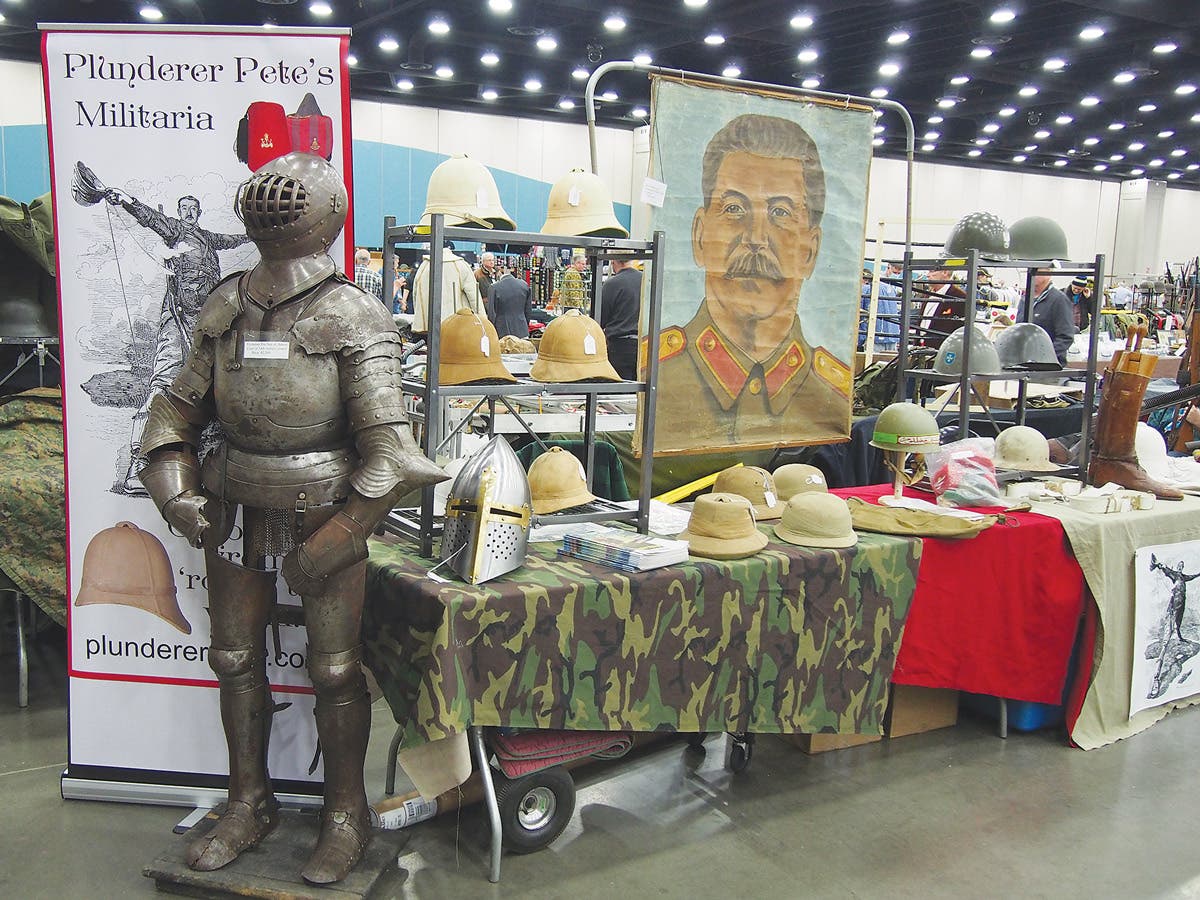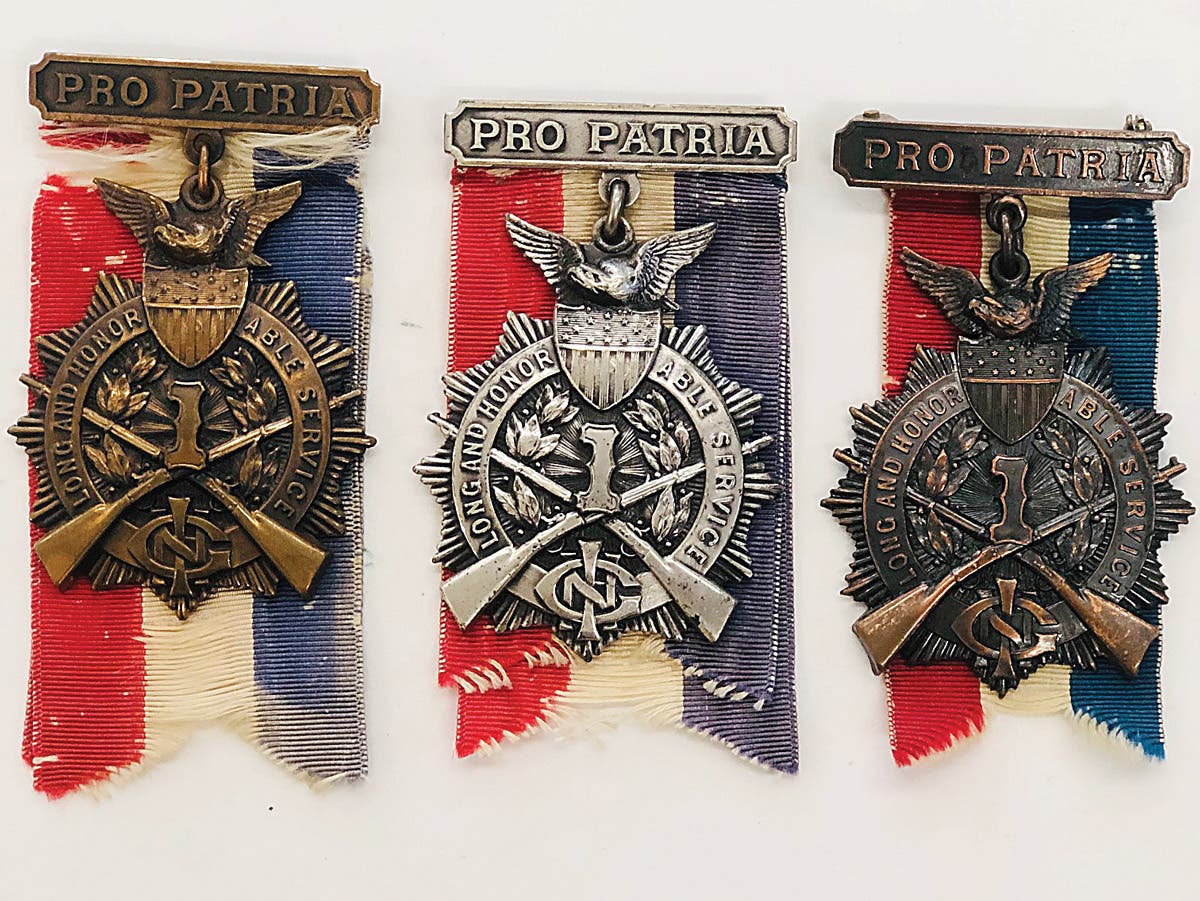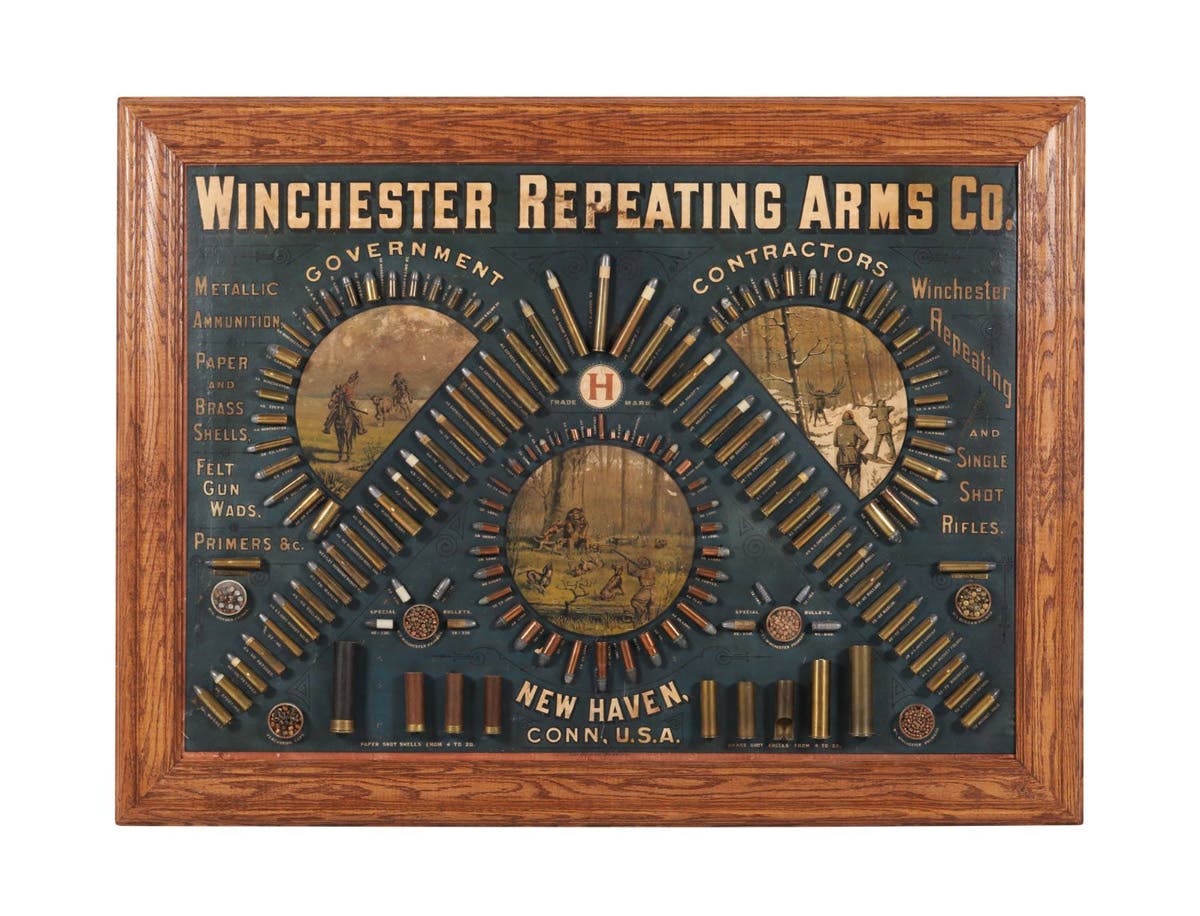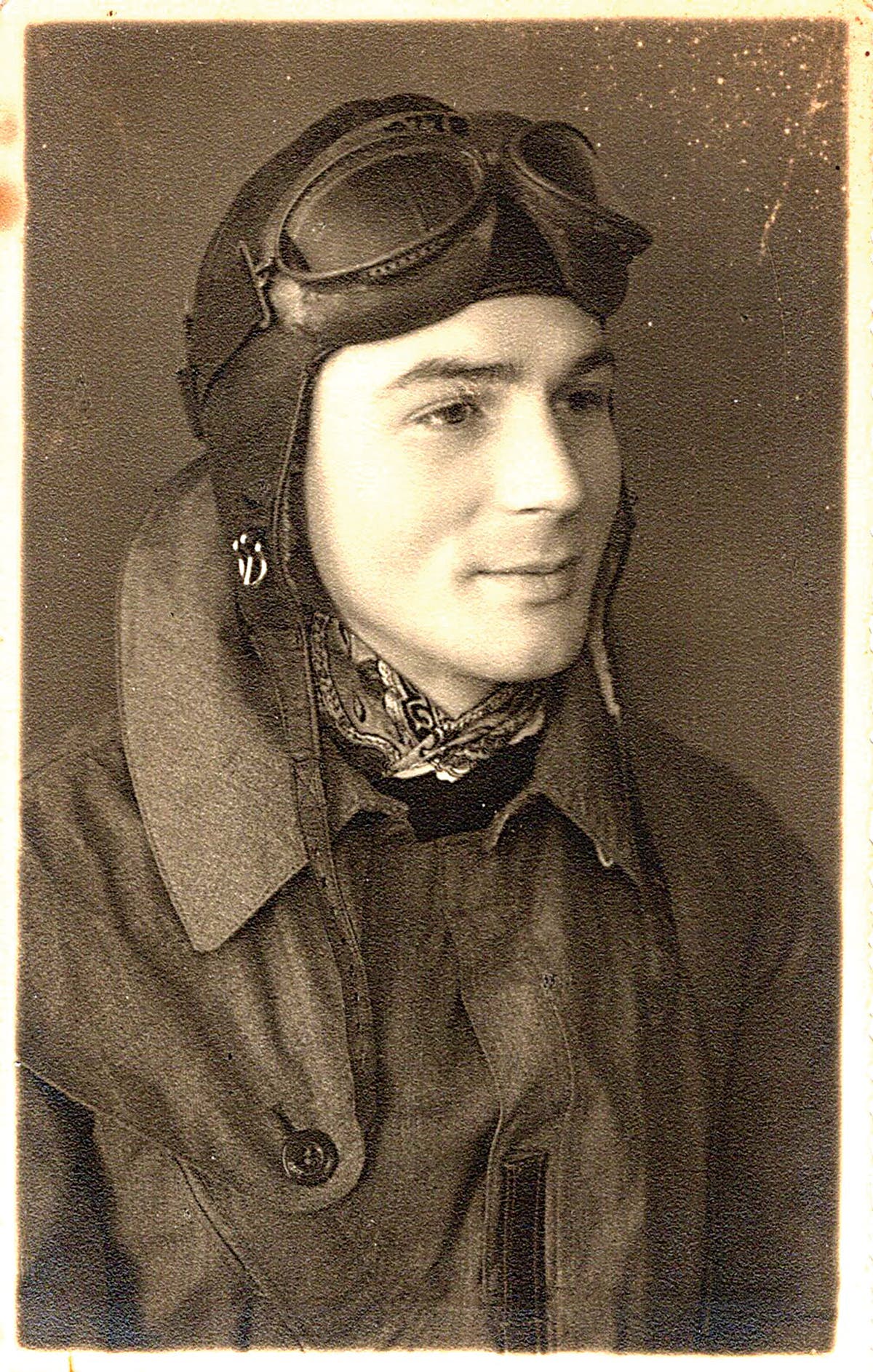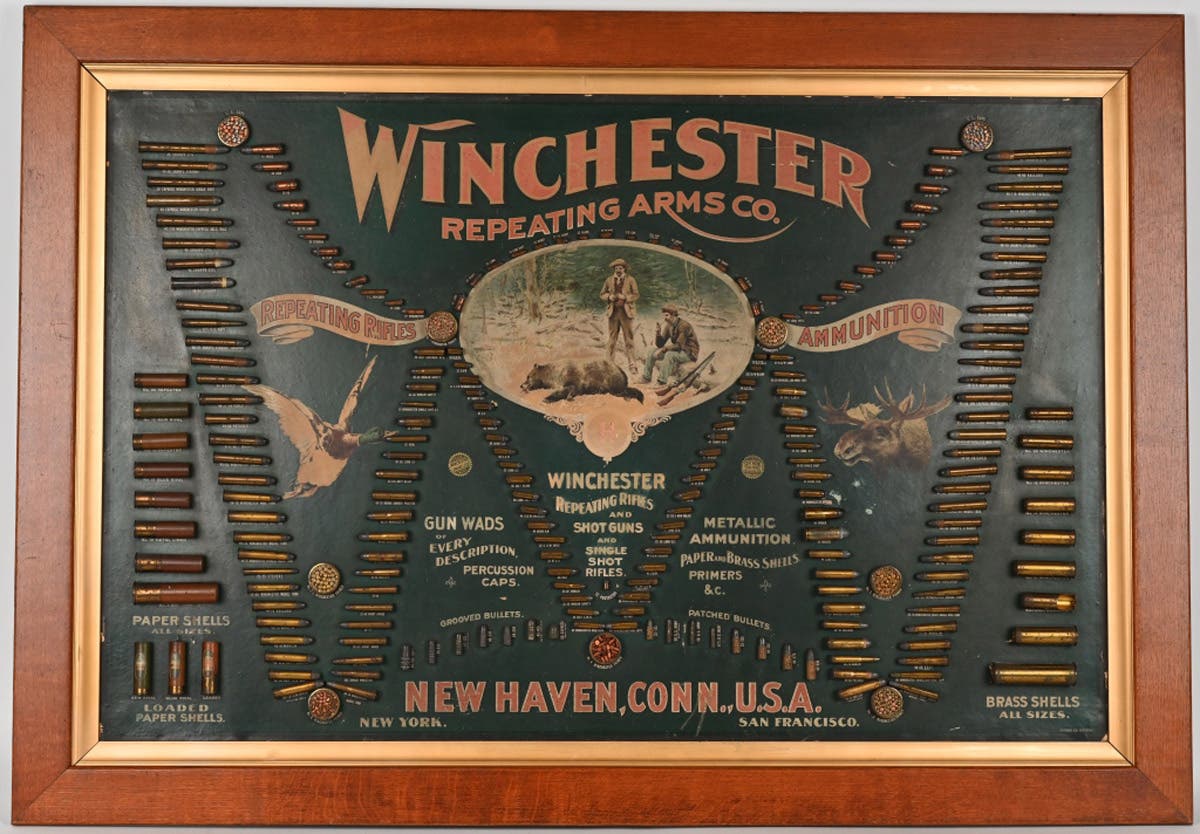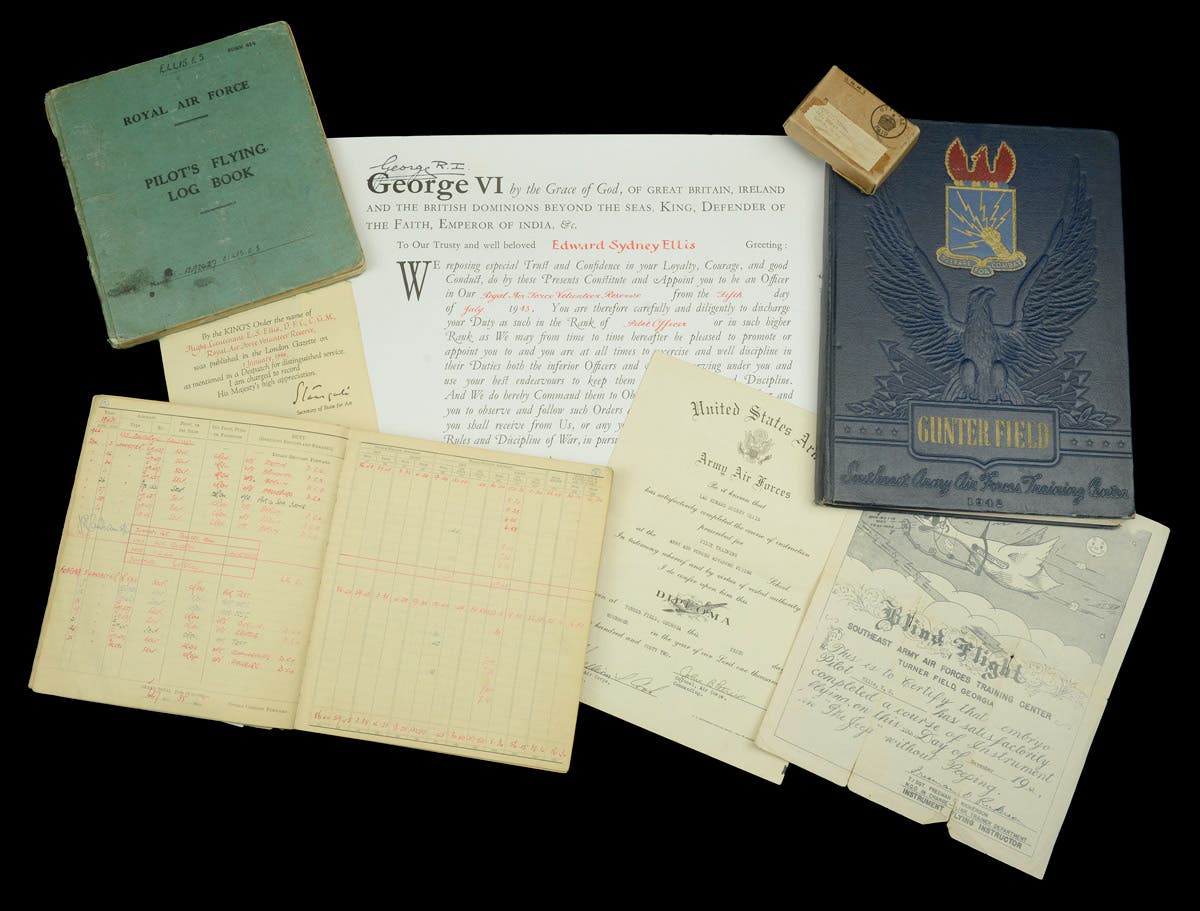10 Questions with David Ginader
Operating a website, showroom, and show presence We are all in this together. In an effort to report on the state of different facets of the military collectibles market, Military…
Operating a website, showroom, and show presence
We are all in this together. In an effort to report on the state of different facets of the military collectibles market, Military Trader strives to discover and share the opinions of the hobby’s leading dealers and collectors. We had the privilege to talk with David Ginader. Most will recognize his name as one of the longtime professional dealers and owner of Time Traveler Militaria.
With more than 35 years in the hobby, David has a very good sense of the ups and downs of the hobby, and in particular, of operating a traditional showroom. We are pleased to offer his response to our “10 Questions.”
Military Trader: Thanks so much for taking the time to meet with us. Many may not know about your lifetime involvement in this hobby. Tell us about how your path winds from when you went to shows with your father when you were six years old to how you now run the business that he began.
David Ginader: Thank you for inviting me to take part in “10 Questions.” Basically, I got started in the hobby with my father like you stated at a very young age. I would help my dad out at the Maryland area gun shows like the Greenbelt and Pikesville shows just outside of the D.C. area.
I also attended several other mall shows that were popular as well back in the early to mid 1970s in Northern Virginia. This is where I got the collector bug with my first pick up of a WW1 Iron Cross, 2nd Class, and I have been hooked ever since. It was fun to wander around the shows to check out the wide range of military collectables.
Through my middle and high school-years, my dad was stationed throughout Europe. We spent quite a bit of time in London, England, during several of his assignments. This is where I expanded my collecting into British medals that I found at the local collector fairs throughout the city. Also, I was exposed to the great selection of military museums throughout Europe to further increase my passion for the hobby. My favorite museum in London was the Imperial War Museum, which I visited during my time living in the city.
Military Trader: While most recognize that Time Traveler Militaria hosts a large, active web site, they may not know about your showroom. Tell us about that and how it fits into your strategy as a militaria dealer.
David Ginader: I wanted to host and create opportunities where the locals can come to meet fellow collectors, to socialize, and share information and knowledge. During my younger years, I enjoyed going to other collector shops to check out military collectibles, to learn, and expand my knowledge between shows. I also appreciated seeing the new items the local dealers and other local collectors would find. Some of my favorite places and memories revolve around my visits to these local shops. Some of my favorites were George Peterson’s Springfield Virginia, area warehouse of goodies, George Marino’s Gettysburg, Pennsylvania, Military Museum with the tons of nice items he would bring out of the “back rooms,” and Rebel Coins small shop in downtown Manassas, Virginia, where metal detector enthusiastic with all their Civil War finds would meet. I enjoyed digging through all the dirt covered Civil War bullets they would bring in each week.
I wanted to recreate those great experiences by hosting and creating opportunities where the locals can sell, trade, learn, and help each other identify and authenticate any items of interest. The showroom also allows me to display my collection. I can enjoy seeing it displayed. The showroom gives others the opportunity to handle and study the items they see on the website.
Military Trader:Your web site seems to contain items “for all pocketbooks.” What changes, if any, have you witnessed in buying patterns since the Recession of 2008?
David Ginader: It seems like one of major changes since the recession of 2008 is that many collectors are now realizing that most have limited funds, and that there are plenty of variety of military collectibles out there. It has forced themto be selective about where they spend their money (just like every other hobby or investment since 2008). There is not the “endless buy, and everything will be worth more later.” Now, collectors need to selective and pick the right items that fit their focus, budget, and collector passion.
Prior to the Great Recession, there was a bit too much of people buying without proper knowledge (both price and quality wise). If there was an okay outcome of the recession, it was that collectors refocused and took more thought, time, and research in spending of their funds.
I tend to collect at all levels of items, sometimes, the smallest, least expensive items can be very enjoyable unique items for your collection or fun to show off to your fellow collectors. It is also an area where a new collector to our hobby can get started reasonably and slowly build their collections as they learn the hobby and build up their experience.
Military Trader: You have a strong background in British medals and orders. How did you get interested in this area? How would you characterize this aspect of the hobby here in the United States?
David Ginader: My British medal collecting started when my family moved to London back when I was 9 years old. I went down to the collector markets on weekends with my dad. I started with British miniature medals as these were very inexpensive and something that I had not seen much of in the U.S shows. From there, I expanded to full-sized British medals, and eventually ended up focused on early campaign medals and British gallantry medals.
I have visited England often, typically, to visit the Britiania Medal Fair along with several small shops and other collector markets throughout the United Kingdom. In the U.S., it is definitely a young market for British Medals outside of the OMSA annual event. However, there has been an expanding interest in British medals, especially among the younger collector base. There is plenty of research potential here especially since many British medals are named along the rim, and there are plenty of research sites to assist in looking up background on different details now with access available via the web or email.
Military Trader: In addition to WWII German and US material, Time Traveler seems to offer a large selection of WWII Japanese items. Tell us about this market in the United States: Who is a “typical” collector, what types of Japanese material seems to be the most popular, and is this a potential “growth area” for dealers?
David Ginader:My main areas of focus are WWII German, U.S., and Japanese militaria. Actually, I believe those are really the “Big Three” in terms of what is offered at most of the military shows throughout the U.S. today.
For Japanese militaria, I got my start from the Maryland area Japanese Sword Society Collectors and Maryland area shows. There were a lot of Japanese sword collectors who shared their knowledge with me and helped me in this field.I really enjoy the challenge of Japanese swords and the unique characteristic and study of each of the swords. This was a field that was huge in the 1990s and has since cooled off a bit in terms of pricing. However, this is still an under-respected field and one of good opportunity. The pricing is actually a little more friendly today for beginning collectors. One of the major challenges is that thefield of Japanese swords is a whole field onto itself. It can be a lifelong study and singular hobby.
Most collectors who are interested in Japanese swords seem to be people that are very into the details of an item. There is a lot to study in each blade; anywhere from the signature on the tangs to the very minute details of the blade from blade tip, blade graining, blade edge, blade shape, blade condition, etc, and as well as all the appropriate terminology associate with each.
One of the things I love about this hobby is the ability to continue to learn and expand knowledge and not peak out. I have been collecting my whole life, and I still have so much to learn and see this hobby as challenging, fun, and entertaining throughout my entire life.
Military Trader:In your own view, tell us about the “health” of the militaria world right now. What is “hot” and what is “cold” as far as sales are concerned. What area(s) do you see as gaining traction among collectors in the last couple of years?
David Ginader: As typical, the military hobby is continuing to change with different fields being areas of focus each year.Basically, it is best to focus on areas that are of the most interest to the collector and look more at overall long term growth.
Over time, most fields tend to trend upward (with temporary short-term ups and downs). We have seen this with a large range of fields such as Japanese swords, high-end German helmets, WWII German war badges and daggers, U.S. WW1 uniforms, and others. Overall, the health of the military business has been good over the last several decades, however, collectors have become pickier on what items they will spend their funds. Also, the U.S. military field has started to expand its collector base with many young collectors gravitating to the historic American militaria field.
Military Trader: What, if anything, do you perceive as the biggest threats to the hobby of collecting militaria today?
David Ginader:Probably one of the biggest threats is one that has been around for a while and continuing to expand. That is, the field of quality reproductions meant to fool collectors. This continues to become dangerous and is a minefield for many new collectors. However, there are new tools available today that were not available to many of us when we were starting out. That is the military collector forums and reference books.
You do still have to be cautious on forums and ensure that you know the quality and experience of the people trying to assist, to ensure they truly are knowledgeable and accurate in what they are stating. The newer reference books are greatly improved and provide a lot more details and information than their predecessors.
Basically, new collectors should arm themselves with knowledge and utilize a mixture of resources such as forums, reference books, and fellow collectors to assist them as they gain experiences. It is the responsibility of all of us to inspire each other andshare our knowledge and our passion to inspire the next generation of collectors. I try to provide a library of reference books for the local collectors to checkout. I also hold Saturday showroom days where locals can come and share their knowledge and help each other out on authentication, information, and research.
Military Trader: Like all of us, you have been a collector for many years. Tell us about what you collect and why it is important to you. Does it influence your business’ direction?
David Ginader: I really collect a wide range of militaria; my main areas of focus are WWII German and U.S., British medals, and Japanese swords.
I started off primarily in the WWII German historic collectibles field. The wide range, variety, and style of WWII German medals, badges, daggers, and helmets caught my interest and were a favorite first study. From there, my collecting interest continued to expand over the years and continues to challenge me as I learn the details of each of the fields.
I have really enjoyed the military hobby and making my displays, discovering new information, and the search for that missing variation or version of a particular item. I am a collector at heart, however. I run my business to be able to handle more items and truly enjoy everything there is in our hobby. It has been a lot of fun all these years, and I truly enjoy — not only the hobby — but all the fellow collectors and dealers I have met over the years.
Military Trader:Our readers love stories about collectors’ “Favorite Finds.” Tell us about what you consider to be one of your most memorable militaria discoveries.
David Ginader: There have been many through the years. I love the part of the “treasure hunt” when looking for cool, new items for my collection, or something I can offer to my fellow collectors.
Some of my most memorable are the ones where I was dealing with fellow collectors and mentors or where the items were rescued from being lost and thrown away. One example was from a mentor and a collector to whom I looked up since a very young age. I had visited Gettysburg with my father quite often when I was young. We we would stop by George Marinos’ Gettysburg Military Museum when we finished going through the Civil War battlefield.
When I was older and looking for a WWII German Knights Cross to the Iron Cross for my collection, George came out of his back room with a very nice Juncker Knights Cross with oakleaves and swords. Typically, he did not let things like this go, however, he offered it me for my collection. I cannot tell you how excited I was to be able to pick this one up! It really made my collecting year, and I still remember it to this day. Not only because of the item, but, it was from a special collector as well.
Next, I think we all frequently hear about people potentially throwing out militaria without respecting the historical value or knowledge of the items.It is great every time I can save these items — many times, making the those people aware of the value of what they have. One example was a person that walked into the showroom with what they had found in an attic. It wasabout to be thrown out. Luckily, the person decided to check with me first to see if the items had any value before pitching them. What the person handed to me was an old, beat-up WWII U.S. Army first aid pouch. I opened the pouch to find four German war badges inside: A WWII German Army paratrooper badge, 75 Assault Panzer badge in excellent condition, Anti-Partisan badge, and an Infantry Assault badge!
Typically, you see a bunch a common badges, and then, once in a while, a harder-to-find badge in the mix. However, this batch contained several rare badges (so unusual!). I told the seller about the rarity of these and their basic value. He offered to sell them to me at a fair value. I was really excited to see these badges and to be able to purchase them. The seller was so excited to get a bunch of cash for these found items. It was great for both of us. I love these type situations where I am able to save rare militaria from being lost.
Military Trader: And finally, because many of us dream of owning our own militaria shop or starting our own business, share what you consider to be the secret to your success as a militaria dealer.
David Ginader: I think the statement is true that if you do what your passion is, you will never work a day in your life. So, with that said, the starting point is a true passion for the field you are in. If you are only in it for the money or chasing the dollar, then you will have a difficult road ahead of you. Let your focus and the love for the hobby drive your business, and where you want to specialize.
The next recommendation is to surround yourself with fellow collectors and experts. Many people really do want to share what makes them successful in business and help others join the group of successful dealers (the more people successful in the military collectibles business, the greater the basic structure of the hobby).
This goes with helping each other in the hobby: Make it enjoyable for those starting out and try to make this their full-time fun.
There are way too many recommendations to cover in this quick response. However, a couple of other items I would recommend is to collect and offer for sale what you would be proud to have in your own collection. Typically, we have limited funds. So, be picky about how you spend your funds and don’t fall in the trap of “you can make a lot on this item, however, I am going to sell it to you cheap anyway.”
Next, listen to your gut. Typically, your gut is always right. And finally, have fun and take the time to enjoy what you do, what you display, and what you offer to others for sale.
We are honored to interview and report on prominent players in our hobby. You can make arrangements to visit The Time Traveler showroom in Charlotte, NC, by calling David at 703.216.4994, emailing johnnyg900@aol.com, or writing: Time Traveler Militaria, P.O. Box 49187 Charlotte, NC 28277. Visit Time Traveler’s website at: www.timetravelermilitaria.com
John Adams-Graf ("JAG" to most) is the editor of Military Trader and Military Vehicles Magazine. He has been a military collector for his entire life. The son of a WWII veteran, his writings carry many lessons from the Greatest Generation. JAG has authored several books, including multiple editions of Warman's WWII Collectibles, Civil War Collectibles, and the Standard Catalog of Civil War Firearms. He is a passionate shooter, wood-splitter, kayaker, and WWI AEF Tank Corps collector.



